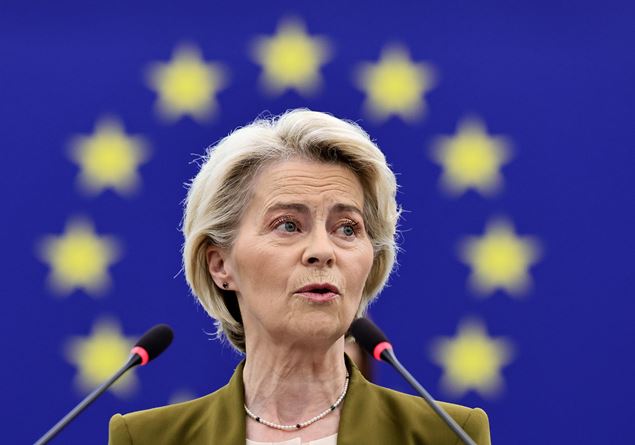by Ludovico Bianchi
Europe woke up, but with the hard face of the war. In his speech on the state of the Union, Ursula von der Leyen has abandoned any rhetorical caution: the European Union is no longer just a peace project, it is a continent called to defend its survival. The incipit of his intervention to the Europeanulation was an act of rupture: “Europe fights, he fights for a free and independent Europe”. Words never listened to with this clearness and hardness by a President of the Commission.
The shadow of global conflicts
The war in Ukraine, the bloodbath in Gaza, but also the invectives of Donald Trump against Brussels: everything flowed, like dark clouds, in the hemicycle of Strasbourg. Von der Leyen denounced yet another Russian provocation: the “unprecedented” violation of the Polish aerial space. He did so in front of Sasha, a Ukrainian boy kidnapped by the Russians and then fled, a living symbol of a conflict that does not retreat.
European drones for Kiev
His main announcement: the birth of a Alliance of the drones. It means mobilizing the European industry not only to produce conventional weapons, but to bring Kiev within the technological future of the war. It is a crucial passage: with the progressive disengagement of the United States, Europe can no longer be hidden only behind the Atlantic umbrella.
The unprecedented challenge to Israel
The surprise of the speech came on the Middle Eastern front. Von der leyen proposed penalties against Israel: not a symbolic gesture, but the suspension of the commercial part of the EU-Israel Agreement and individual measures against “extremist” ministers. An unprecedented move in the history of relations between Brussels and Tel Aviv. The reason? The use of hunger as a weapon in Gaza, “a famine caused by man who can never be accepted”.
Common defense: more than a dream
Von der Leyen does not abandon NATO, which remains “essential”. But it indicates an autonomous way: “Only a strong and credible European defense can guarantee us security”. He spoke of spatial surveillance in real time, of the Baltic project for a “wall of drones” to the oriental borders, of a Europe capable of defending “every centimeter” of its territory. It is the practical translation of a concept that the war for Ursula has made evident: without military power, Europe has no voice. But does it really need it?
Transatlantic realism
A more conciliatory passage concerned the United States. Von der Leyen defended the commercial agreement signed in the summer: he avoided an economic war with Washington, and with it – he supported – millions of European jobs. It is not the Europeanist enthusiasm of the past, it is pure geopolitical realism.
Europe that changes
Von der Leyen delivers to Europeanization and governments an image of Europe that we have never known: less teacher of values, plus power machine. With the warning that sounds like a ultimatum: “Today’s world does not forgive anyone”.


